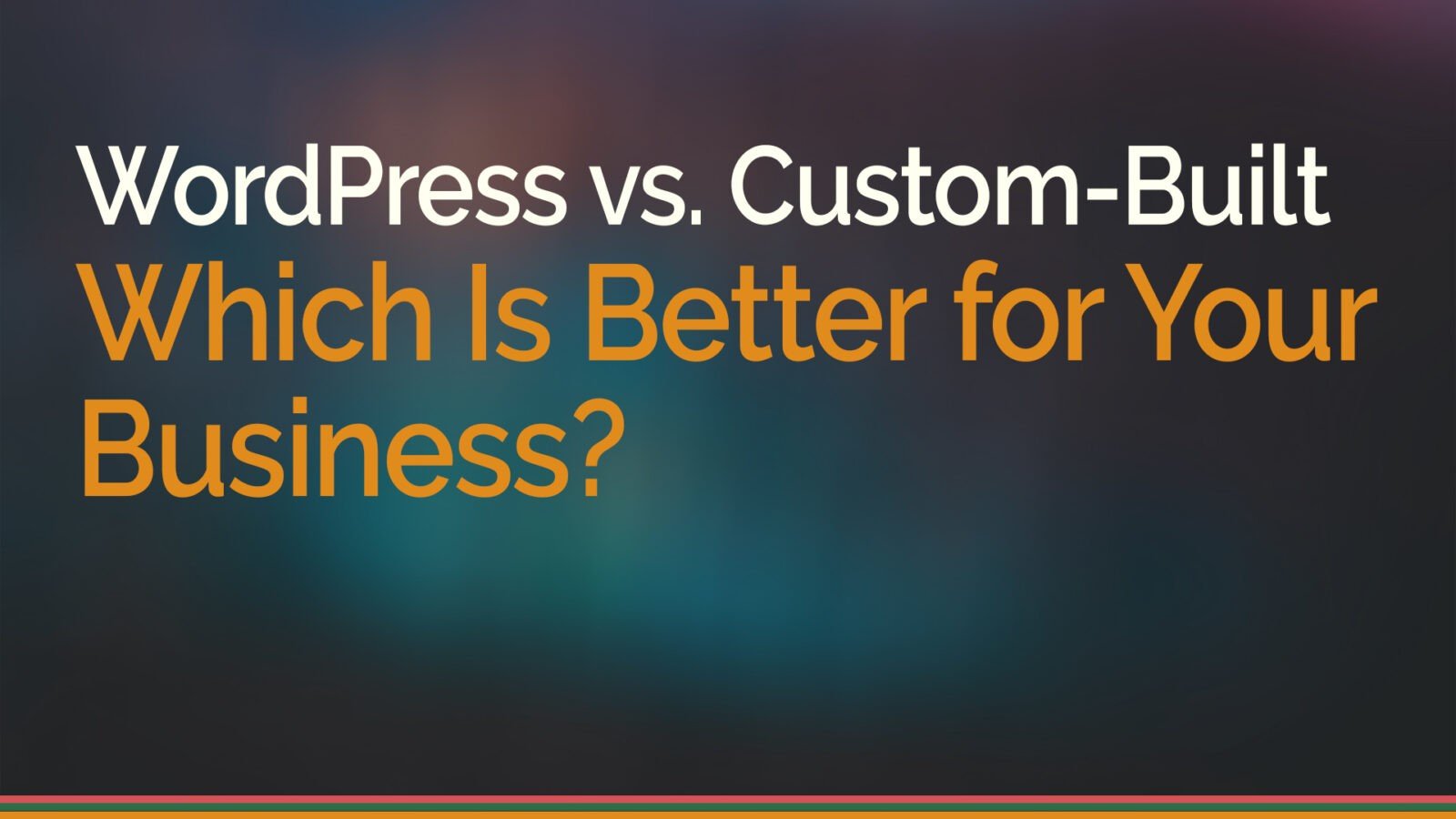When building a website for your business, one of the first decisions you will face is choosing between WordPress and a custom-built website. Both options come with their own set of advantages and drawbacks, and understanding these is essential to making an informed decision. At Neocube, we specialize in both WordPress and custom-built websites, helping businesses choose the best solution for their specific needs. This blog will guide you through the pros and cons of each option, ensuring you find the right fit for your business.
Why Your Business Needs a Great Website
Before diving into the specifics of WordPress and custom-built websites, it’s important to understand that your website is the digital face of your business. According to research, 75% of consumers judge a company’s credibility based on its website design. The right choice of platform can help you scale your business effectively and create a smooth user experience, while the wrong choice can limit your potential for growth and hinder your customer experience.
Table of Contents
WordPress Websites: The Pros and Cons
WordPress powers over 40% of all websites on the internet today, making it one of the most popular content management systems (CMS) for businesses worldwide. Its versatility and ease of use make it a great option for small and medium-sized enterprises. However, it’s not without its limitations.
Pros of WordPress Websites
- Cost-Effective WordPress is often the more affordable option for businesses looking to get a website up and running quickly. With thousands of free and premium themes available, it’s easy to create a professional-looking site without the expense of hiring a developer. WordPress also offers a vast array of plugins that can extend the functionality of your site without the need for custom coding.
- Easy to Manage One of the key benefits of WordPress is its intuitive interface, making it easy for non-technical users to manage and update their content. With a short learning curve, business owners can handle basic website maintenance, such as uploading blog posts, adding pages, or updating images.
- SEO-Friendly WordPress comes with several built-in features that can help your site rank higher on search engines. Plugins like Yoast SEO make it easy to optimize every aspect of your website for search engines, from meta tags to keyword density.
- Huge Plugin Ecosystem WordPress’s biggest strength lies in its vast library of plugins, which provide added functionality such as e-commerce integration, booking systems, and marketing tools. The WooCommerce plugin, for example, is a popular choice for businesses looking to add an online store.
- Responsive Design Most WordPress themes are designed to be mobile-friendly right out of the box, which is essential in today’s mobile-first world where more than 50% of web traffic comes from mobile devices.
Cons of WordPress Websites
- Limited Customization While WordPress offers a lot of flexibility through its themes and plugins, it’s still limited when it comes to fully custom designs. Businesses looking for a unique, highly specialized website may find that WordPress falls short in terms of complete customization.
- Potential Security Issues Since WordPress is so widely used, it’s a common target for hackers. However, using reliable hosting, keeping your themes and plugins updated, and implementing security measures like firewalls and malware scans can help mitigate these risks.
- Performance Issues As you add more plugins to a WordPress site, it can sometimes slow down your website’s performance. Optimization techniques like caching, optimizing images, and using a Content Delivery Network (CDN) can help, but this is something you’ll need to manage carefully.
Custom-Built Websites: The Pros and Cons
For businesses that require a highly specific and tailored web solution, custom-built websites can be the way to go. Custom websites are typically built from scratch by developers using programming languages such as HTML, CSS, JavaScript, and frameworks like ReactJS, Node.js, and others. At Neocube, we provide fully custom-built websites designed to meet the unique needs of our clients.
Pros of Custom-Built Websites
- Complete Customization One of the biggest advantages of a custom-built website is the ability to have total control over every aspect of your website. You are not confined to any templates or predefined structures, allowing you to create a completely unique and user-centric experience.
- Scalability Custom websites are built to grow with your business. If you foresee your business scaling significantly or having unique functionalities in the future, a custom-built solution is the better option. Custom sites are designed to handle large amounts of traffic, complex workflows, and specialized functions.
- Faster Load Times Custom websites are often better optimized for performance since developers can code specifically for your needs, eliminating unnecessary bloat found in many WordPress themes and plugins.
- Enhanced Security Custom websites can have superior security since they’re less likely to rely on third-party plugins that could introduce vulnerabilities. With a custom-built site, developers can implement specific security measures tailored to your business needs.
- Unique User Experience Custom websites allow for the creation of a seamless and intuitive user experience, which can differentiate your business from competitors and better serve your target audience.
Cons of Custom-Built Websites
- Higher Cost Custom websites tend to be more expensive than WordPress sites because they require more development time and expertise. For businesses with a limited budget, WordPress might be the better option in the short term.
- Longer Development Time While WordPress sites can be set up in a matter of days or weeks, custom-built websites take longer to develop. This can be a drawback if you need to launch quickly or make frequent changes.
- Requires Technical Knowledge for Maintenance Unlike WordPress, which allows non-technical users to make updates, custom-built websites often require a developer for maintenance and updates. This can increase long-term costs if you need regular changes or new features.
Which Option Is Best for Your Business?
At Neocube, we recommend WordPress for small to medium-sized businesses that need to get online quickly, at a lower cost, and with minimal technical effort. For more complex needs, or for businesses that require a unique digital experience, a custom-built website is the better long-term investment.
Conclusion
Both WordPress and custom-built websites have their advantages and disadvantages, and the right choice depends on your business’s goals, budget, and growth plans. Whether you choose WordPress for its ease of use or a custom-built website for its scalability and uniqueness, Neocube can help you craft the perfect digital solution to meet your business needs. Interested in building a WordPress or custom-built website? Contact Neocube today to discuss your options and find the best solution for your business.





